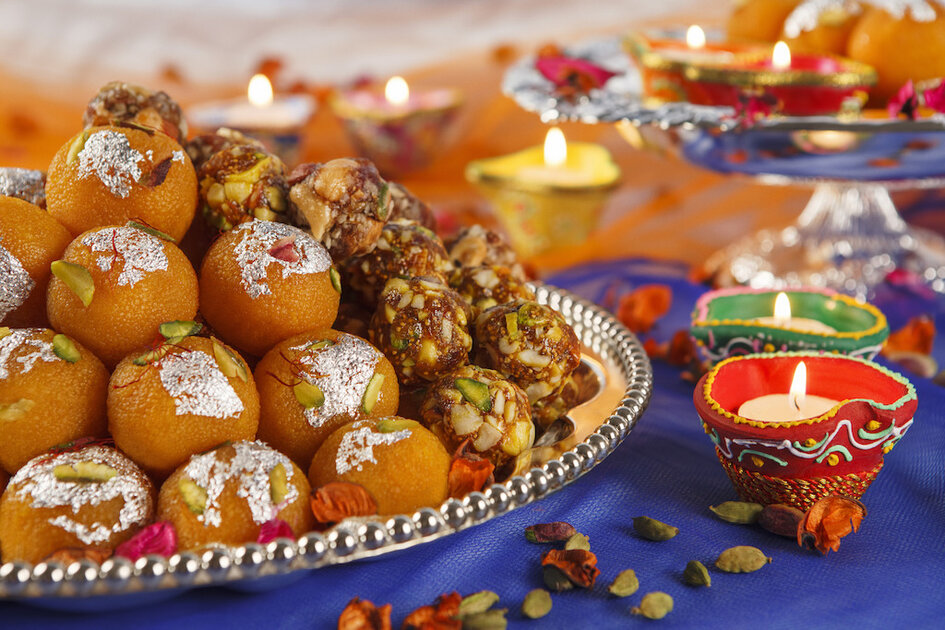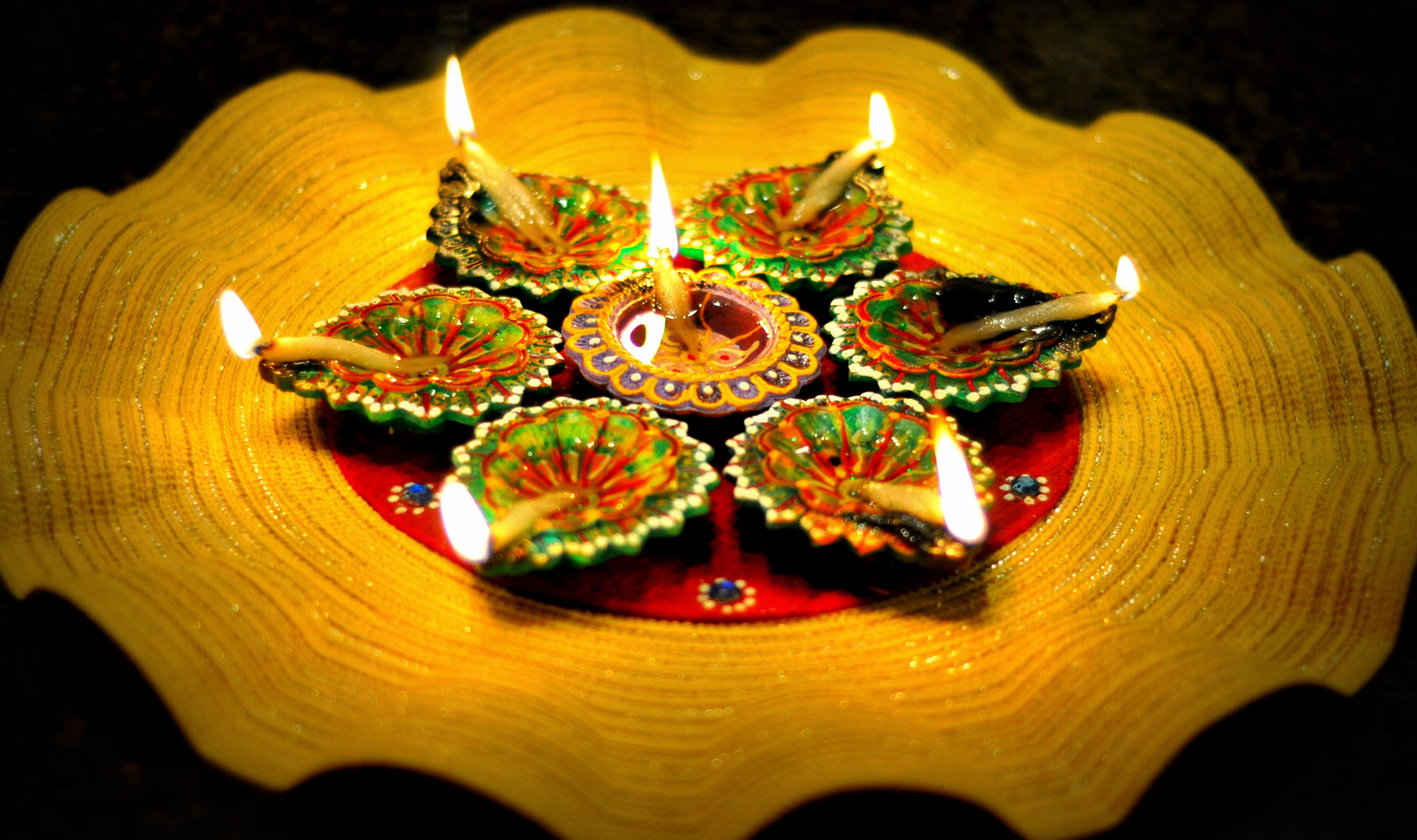
Diwali is the most important Hindu festival. With billions of lights placed in houses and on the streets of Indian cities, the followers of Hinduism commemorate the victory of good over evil and darkness. In 2021, Diwali falls on Thursday, November 4. It is a holiday of prosperity in which people give gifts to their loved ones.
The theme of the victory of good over evil may be associated with the proverbial coming out of the sun right after the storm. The sun, or light, crossing dark storm clouds. This kind of “victorious” light is celebrated in India at the Diwali Light Festival. Hundreds of lights placed on the streets, followers of Hinduism commemorate the victorious fight of good against evil and darkness.
Diwali or Deepavali is one of the most important holidays celebrated by Hindus around the world. It is also called the festival of lights, which symbolize the victory of good over evil described in one of the epics. Celebrated in India during the new moon, usually between mid-October and November – November 4 in 2021 – the Diwali lasts five days. During this festival people clean their homes, decorate every corner of the house with lights, lamps, diy, flowers, rangoli and candles. Families also perform the Lakshmi Puja ritual and pray to the Goddess of wealth to bless them with health and prosperity. 15 days later, in Varanasi, also known as the City of Light, there is dev Diwali, often mistaken for Diwali. This holiday, typical only for Varanasi, is commemorated, among others, by bathing of the gods in the Ganges who descended to Earth during the full moon (15 days later).
Varanasi is one of the oldest cities in the world and one of the most important pilgrimage centers for Hindus. Hindus believe that they can get moksha here, that is, liberation from the circle of samsara, forcing the soul to take another incarnation after death. Varanasi attracts thousands of pilgrims washing themselves during ritual baths in the waters of the Ganges, as well as holy men of sadhu meditating on ghats, stairs leading to the holy river. The mystical atmosphere is also spread to tourists from all over the world – every year increasingly of them come here.
The origins of Diwali
The Sanskrit word “dipawali” means a row of lamps fired from clay and refers to the lights lit in front of houses as a symbol of the victory of light over darkness. The oil lamps, which, interestingly, are often burned not with oil, but with sesame oil or simply with ordinary ghee butter, refer to the battle of prince Rama (one of the incarnations of the god Vishnu) with the demon Ravana, described in the epic “Ramayana,” a Sanskrit epic from 2,000 years ago . The Ramayana tells the story of Prince Rama who is the incarnation of the god Vishnu. After 14 years in exile, Rama is forced to fight the demon who kidnapped his wife, Sita, identified with the goddess Lakshmi. With the help of his brother and the heroic general Hanuman, commanding the army of monkeys, the prince frees his faithful wife and defeats the beast that symbolizes evil and darkness. Lanterns illuminate the way back to the kingdom in Ayodhya. In this way, the faithful people show their joy and celebrate the liberation of the world from evil.
Traditional dishes prepared for the festival of light

As with most festivals, feasting is part of the tradition. Especially in the case of Diwali, which is devoted to Lakshmi – the goddess of happiness and prosperity. We present some of the most popular dishes that are eaten during this holiday.
Kaju barfi – a dish based on milk and cashew nuts, prepared in the shape of a diamond.
Chakli – crispy snacks made from rice flour and then deep-fried.
Coconut Barfi – a must-have dessert during the Diwali festival, served with coconut flakes, prepared from condensed milk and sugar.
Rasmalai – a delicacy made of chenna cottage cheese, seasoned with cardamom
Sandesh – it is also a dessert prepared on the basis of cottage cheese, seasoned with saffron and cardamom
These are only some of the dishes prepared during Diwalia, but most of them are sweet, aromatic dishes that everyone who participates in this festival would like to try.
How is Diwali celebrated?

The Diwali Festival lasts 5 days and each of them is actually celebrated with something else. Moreover, each of them has its own specific name. See how this unique event is celebrated!
Preparations for Diwali actually take place on the first day of the holiday. This day is called “Dhanteras.” On this day, the Hindus prepare for the celebration of a great holiday, believing that this will bring them the favor of the gods who visit only the cleanest houses. So, it is a day of cleaning and decorating houses for the coming of the gods. On the first day of the holidays, prayers are also held to the goddess Lakshmi, patroness of merchants, businesspeople, and small entrepreneurs. On this day, too, some people take a ritual bath to wash away all the dirt of the previous year, to be able to enter the new year completely clean, with a new, refreshed body. Dhanteras is also an enjoyable time to buy gifts for your loved ones, during this holiday you often give your loved one’s sweets.
On the second day, called “Naraka Chaturdasi,” clay lamps are lit in the houses to greet Lakshmi. Additionally, on this day there are prepared desserts and sweets, which are an integral part of the festival.
The third day is the culmination of Diwali celebrations. During “Lakshmi Puja,” families meet for common prayers to the goddess of happiness and prosperity, and in the evening there are firecrackers and fireworks. This is done in order to properly greet the goddess and ward off dark powers.
The penultimate day of the festival is a time for family and friends to eat together and give each other gifts. This day is called “Padua.”
The last day of celebration is called “Bhai Duj” and is a day of brotherly love. The sisters invite their brothers to dinner, and they give them gifts. Moreover, they pray to each other for happiness and well-being for their siblings.
As you can see, the whole festival of lights in India is an extremely intense time for Hindu believers. It is accompanied by joy and gratitude for the presence of family and friends and for the victory of light over darkness.




Nice information and Good writing skills Thanks